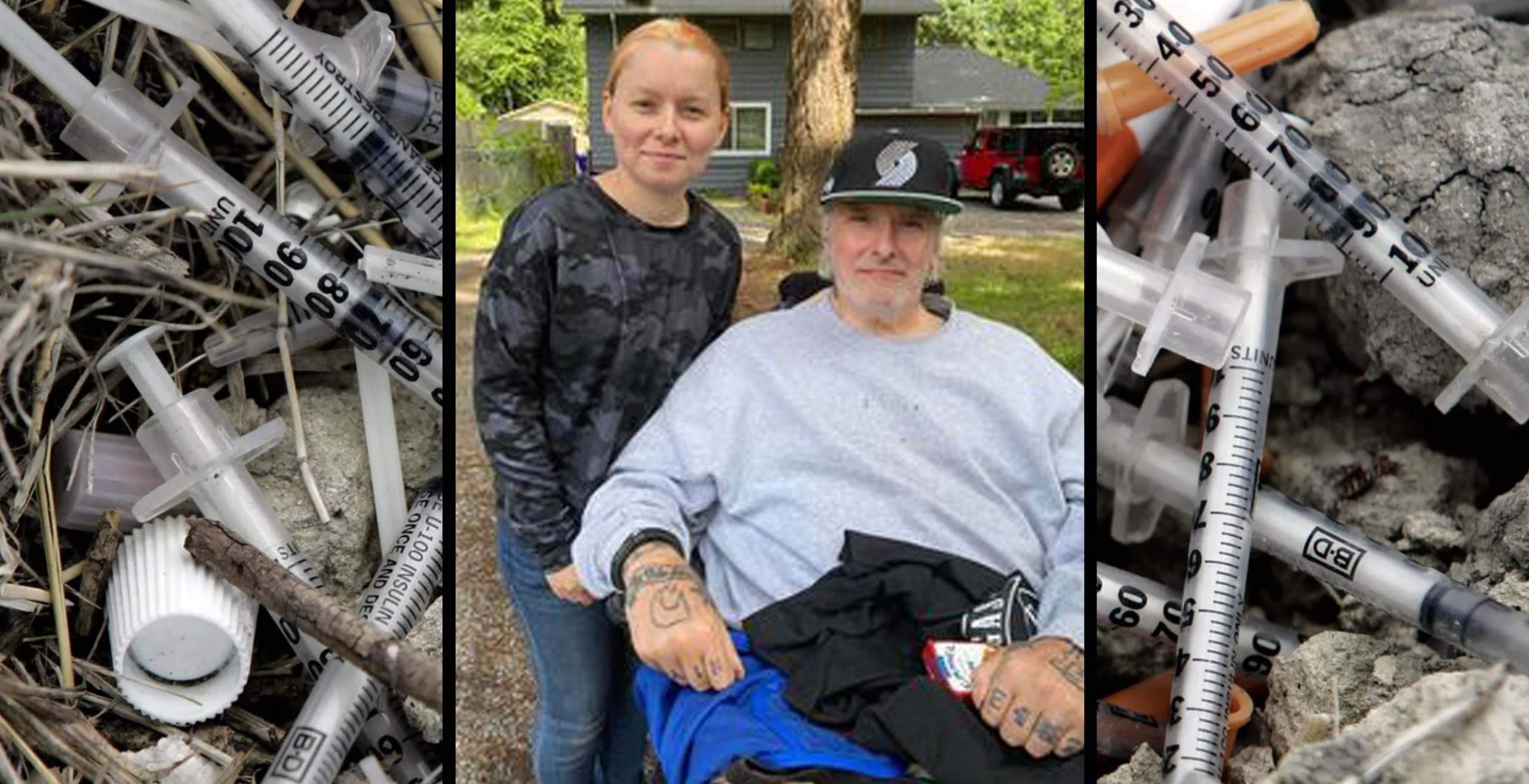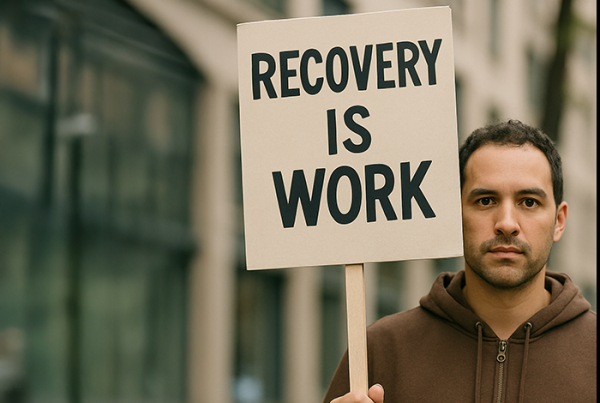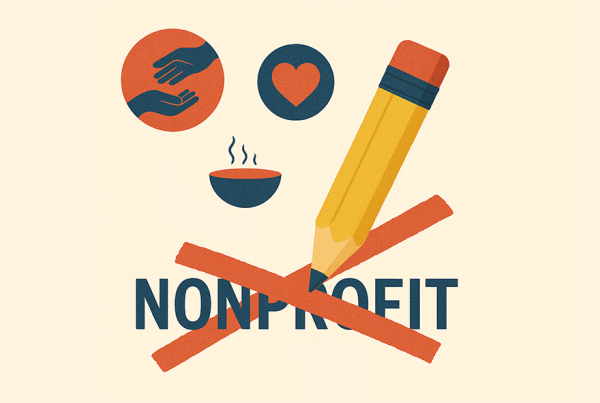A man who became paralyzed due to his drug addiction believes harm reduction could lessen permanent damage and public health risks.
It’s tough for “normies,” a term used by people with addiction for those unfamiliar with it, to grasp the immense power drugs can exert over a life. Alan Merrill, who lost everything, including his ability to walk, knows the grip drugs have to consume your mind and body.
“My only concern was heroin,” Alan recalls of his days living on the streets near Union Station in Old Town Portland. “I just didn’t care about anything else. Once you get hooked, heroin will be your best friend for life and you will never put anything in front of it again. I even abandoned my family.”
In 2020, Alan’s life revolved around the vicious cycle of heroin use. Each day seemed bleaker than the last, as addiction held him captive. His only connection to ordered society was to eat meals nearby in a free cafe operated by Blanchet House of Hospitality. He also received clothing there.
Jennifer Coon, a peer support specialist with Blanchet House, was stationed on the sidewalk during meal services to offer support and service referrals to diners. In recovery herself, Jennifer’s positive and consistent presence became a glimmer of light to Alan, offering kindness when it seemed like no one else cared.
“I don’t know what she saw in me, but she made me feel special no matter how messed up I was,” Alan confesses. “She even offered to give me rides to detox but I thought ‘hell no, I don’t want to be sick.’ She would ask me if I was okay. It took me almost dying to become ready.”
Despite Alan’s resistance, Jennifer never waivered in her efforts to reach him. She continuously encouraged him to seek help and consider entering a detox facility. Day after day she would plant the seeds of recovery and build trust.
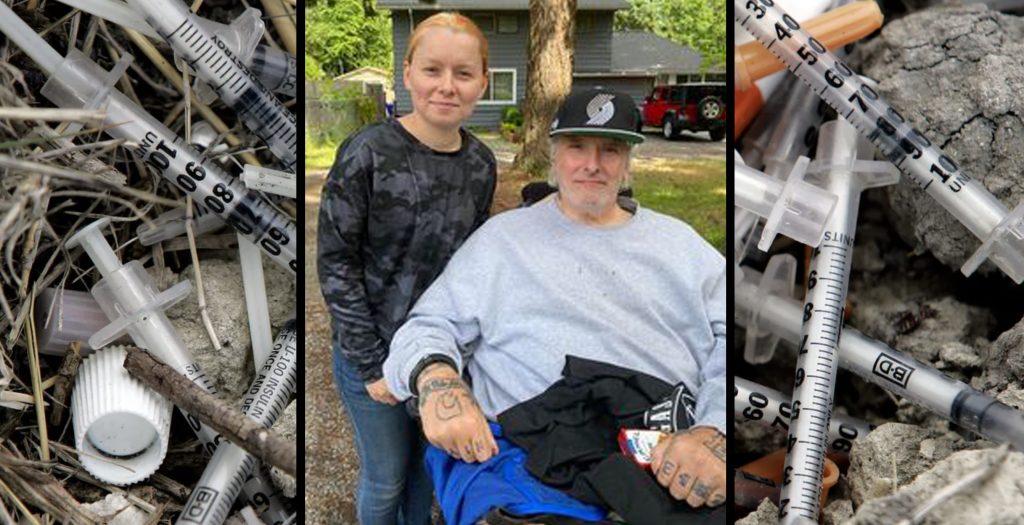
Alan Merrill (seated) with his daughter in 2023.
What is Drug Addiction?
According to the National Institutes of Health, addiction is a chronic and relapsing disorder, that involves compulsive drug seeking and use despite adverse consequences. It alters brain circuits related to reward, stress, and self-control, even persisting after drug use cessation. Like heart disease, addiction disrupts healthy organ functioning, causing severe harm. If left untreated, it can have lasting effects and lead to mortality.
The stigma surrounding addiction can be alienating leading to less likelihood of receiving help. And societal expectations to “just stop using” fail to understand the profound complexities of addiction and the barriers to recovery.
“A lot of people don’t know jack s*** about drugs and recovery. It’s complete ignorance and unwillingness to open up your mind to someone else’s point of view,” Alan says. “It’s easier to turn a blind eye than to give a s***. There are people who will never understand.”
Alan began using controlled substances after a car wreck when he was prescribed opioid pain relief pills. When his prescriptions ran out he began to look for a more affordable way to feel good. He bought drugs from the street. A new friend introduced him to heroin and it was the best feeling he had ever experienced in his life. It was downhill from there.
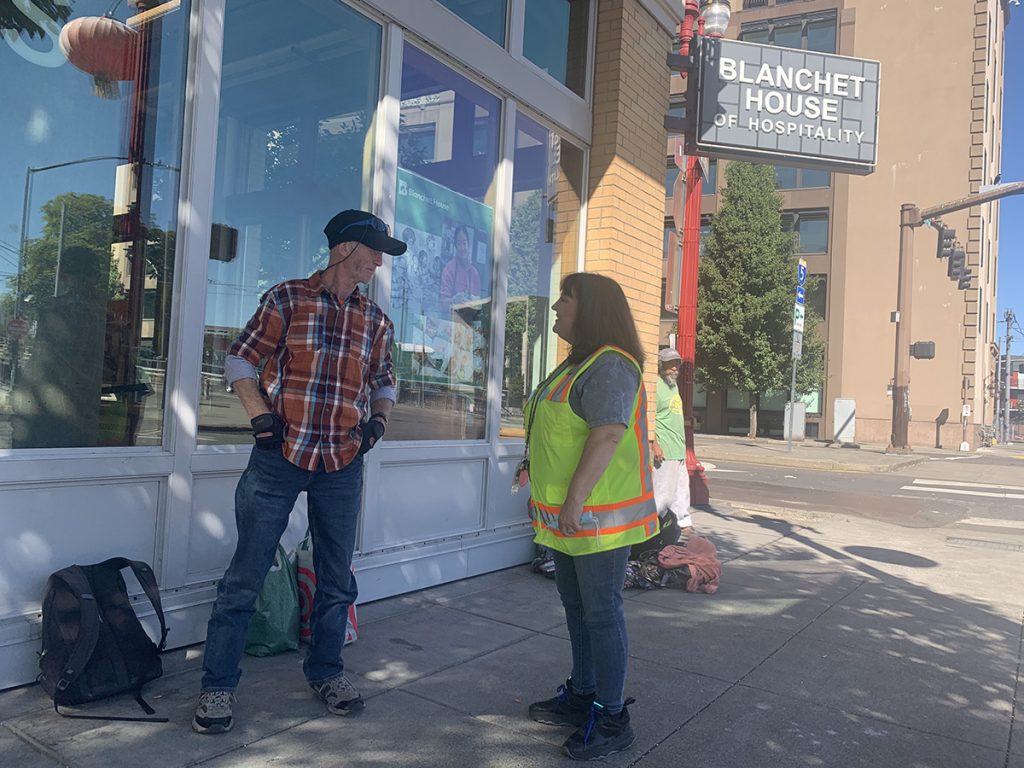
Jennifer Coon speaks with a diner outside Blanchet House.
Harm Reduction to Lessen Permanent Damage and Infectious Diseases
During the worst days of his heroin addiction, Alan used dirty needles he found on the ground and sometimes picked out of medical waste containers. Infected needles caused him to develop an epidural abscess on his spine.
“I woke up one morning and couldn’t move my legs. I dragged myself out of the tent and yelled for someone to call 911,” Alan remembers.
Doctors removed the abscess but Alan would likely never walk again because of the damage to his spine. He would also need assistance for his most basic needs.
Thinking back on these terrifying days from his room in an adult care facility, Alan feels that harm reduction initiatives like distributing clean syringes could have potentially prevented the devastating health consequences he endured.
According to the Substance Abuse and Mental Health Services Administration (SAMHSA), harm reduction is an evidence-based approach to equip people who use drugs with life-saving tools and information to create positive change and potentially save their lives. Harm reduction can also help reduce the spread of infectious diseases like HIV and hepatitis.
“I wouldn’t have gone down this hole health-wise if I had clean syringes,” Alan believes.
The trust Jennifer built with Alan gave her the opportunity to talk about harm reduction services like detox and promote a philosophy of health and healing. The first step of harm reduction according to SAMHSA is to be consistent and reliable to people in active addiction. Alan would have benefited from the distribution of drug paraphernalia which is still a controversial practice and difficult for nonprofits to receive funding for.
Reliable Support Is Rarely Forgotten
In his darkest moments in the hospital, Alan thought about the kindness and encouragement shown to him by Jennifer and other service providers. He called her from the hospital to thank her.
“Thank you for being there when I wasn’t able to be there for myself,” he said of the call to Jennifer. “You’re giving people who don’t have a chance in hell a chance. They’ve given up on themselves. I honestly think without your help I would have overdosed and died a long time ago.”
It’s been more than two years since Alan has used heroin but he still thinks about it. The insidious grip of addiction doesn’t let up. Sharing his story helps him focus on staying healthy, both mentally and physically.
“If I can help one person I will. I’m not trying to save the world but if I can set an example for one person I’m willing to do that,” he says. “My worst day sober is better than my best day getting loaded.”














